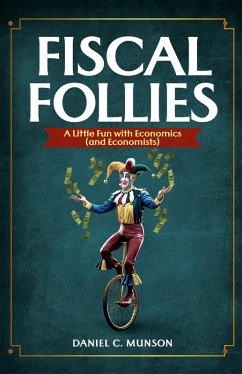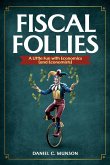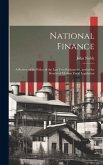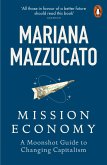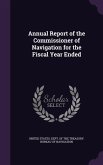The High Priests of the Economics profession are a privileged and highly-compensated group. Their speeches are endlessly analyzed, their every public utterance transcribed and disseminated world-wide. Yet they're often wrong. How can this be? How can a profession that sends one of these high priests to Scandinavia each year to receive a Nobel Prize for achievements in "Economic Science" be so error-prone? The answer is quite simple: Economics, and the social and soft sciences more generally, are not science in the same sense that physics and chemistry and engineering are science. In Fiscal Follies, author Daniel C. Munson pricks the bubble of scientific pretension that surrounds economics and finance and the social sciences generally in a humorous, light-hearted way, and points out precisely why these forms of "science" are so different. Fiscal Follies details the problems inherent in attempting to study humanity using charts and graphs and math, offering instead the idea that movies, plays, novels, music lyrics, and the simple facts of economic history-without all the polarizing platitudes-- can teach economics more effectively. The writing is neither academic nor filled with business jargon, yet it explores many thorny economic issues: social insurance, inflation vs. deflation, socialism, Wall Street pay, gold-backed currency, income tax fairness, energy policy, business school proliferation, etc. The economic significance of many well-known people is explored in these articles and essays: Babe Ruth, Charles Dickens, U.S. President Franklin Roosevelt, California governor Jerry Brown, playwright George Bernard Shaw and literary figures Fran Lebowitz and Herman Melville, philosophers Jean Jacques Rousseau and Karl Marx, the Beatles, Mick Jagger, Swedish rock group ABBA, movie characters played by Greta Garbo, Edward G. Robinson, James Stewart, Lionel Barrymore, etc. Light-hearted criticism of economic planning is done to try to have some FUN with this sometimes-pompous subject. Fiscal Follies seeks to appeal to a reading public that may be a little fed up with the economic and political "know-it-alls" who, though often wrong, still dominate policy discussions. The book concludes with a chance encounter that forces our author to examine a specific moment in American economic and Civil War history that puts some of his ideas to the test.
Hinweis: Dieser Artikel kann nur an eine deutsche Lieferadresse ausgeliefert werden.
Hinweis: Dieser Artikel kann nur an eine deutsche Lieferadresse ausgeliefert werden.

